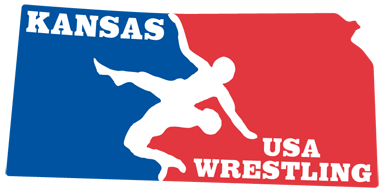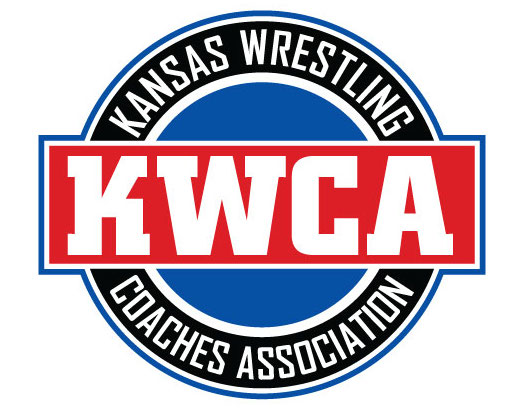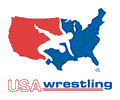Link to below story Field Hockey Remains Controversial Sport For Males
by Eric Adler
CHATHAM — Eleven years ago, a Chatham High School sophomore with immeasurable courage wasn’t trying to make history. He wasn’t attempting to pull a gag or prove a point about how a guy could play on a girls,’ athletic team. Niles Draper was just playing field hockey, the sport he loves.
As the first male student athlete in the Commonwealth to do so, Draper paid the price, enduring a myriad of mockery and taunts. Everyone from the football jocks to furious parents of daughters on opposing teams had an opinion of Draper, expressing their derision as contentiously as possible.
But Draper fought off the onslaught, on and off the playing field, and won a monumental legal battle, protecting the playing rights of mixed-gender teams. It was a watershed verdict which opened the doors for those like him, who could probably do without the plaid skirt but wore it just the same, all for the satisfaction of enjoying the quick start and stop action played with a hard rubber ball on a smooth grass surface with “J” shaped sticks, instead of “L” shaped ones with shoulder pads and ice skates.
Now, two male students at Chatham High – freshman Chris Doyle and senior Jesse Flynn - are on the cusp of beginning their varsity field hockey careers. They’re following in Draper’s footsteps, with just as much verve and enthusiasm as Draper once had, all the while realizing that the path down this road wouldn’t have been possible had Draper not made the imprints to guide them in the first place.
“I would’ve never played if it wasn’t for the other guys who played before,” admitted Flynn, in a reference to not only Draper, but Pete Galop, the Blue Devils goal tender during his senior yea, two years ago. “They paved the way for us, and helped us realize it’s alright for guys to play. If I was the first, it would’ve been much harder and honestly, I probably wouldn’t have been inspired to play.”
Doyle looks up to his predecessors with even more worship and respect.
“Niles is my hero. He has been since I started playing in the sixth grade,” said Doyle, who, like his idol, hasn’t heeded the countless jests and jokes, which began the first day he donned the mandatory skirt.
“It’s not too bad anymore. I’ve gone through a bunch of ridicule before, so I’m used to it by now,” Doyle said calmly while shrugging his shoulders. His sophomoric mannerism, ironically, is a testament to his maturity. “Sometimes the girls have it out for me on the field because I’m a guy. You’ll hear players or coaches say certain things which can be devastating, but I just try to ignore it.”
As of last week during pre-season, it was unclear what role Doyle would fit into on Chatham’s 19-member team. Flynn is enough a natural athlete that, despite being a novice to the fall game, has nailed down the starting goalie position, making him exempt in the dress department. Though Flynn, layered with pads, will look more like a tackling dummy than Scottish bagpipe player, it doesn’t change the fact that he’s playing a sport so few of his friends do.
“I’ve always come to the home games and noticed they’ve always had a goalie problem, so I decided to come out,” said Flynn. “A lot of my friends say, ‘you’re playing field hockey? I thought that was a girls sport.’ But I tell them its co-ed. They’re dazed that I’m playing.”
A Brief History
When Title IX, a federal law requiring gender equality, was enacted in 1972, it was largely created to give equal rights to females. But the landmark ruling permitted males just as much rights. If a girl possessed the interest and ability to participate in a sport which is only provided for the boys, the school had an obligation to either provide a team for the girls or allow the girls to participate on the boys' team. The same applies for boys, granting Draper the entitlement to play for the Lady Blue Devils.
After a relatively carefree sophomore season, Draper’s dream turned nightmare in 1992, his junior year. Several teams, including Harwich, Provincetown and Nantucket (part of the now extinct Cape & Islands League), refused to play Chatham, asserting the five-foot-six, 145-pound center halfback posed a “safety threat.”
Teams forfeited games with Chatham, which were not counted as losses. Likewise, the Blue Devils couldn’t benefit from these surrendered contests, unable to count them as wins. Nor could Chatham participate in the post-season state tournament, unless another coed team qualified, an impossibility seeing as no other mixed-gender field hockey team existed on the Cape or Massachusetts at the time.
Frustrated with the situation, Draper’s mother, Sandra Collingwood, sought counsel in Sarah Wunsch, an attorney with the Civil Liberties Union, and sued the Massachusetts Interscholastic Athletic Association (MIAA) that year. Although the Supreme Court ruled earlier that boys shouldn’t be playing on girls teams, Superior Court Judge Gerald O'Neill, in August 1993, determined that the MIAA's mixed-gender rules violated the Massachusetts Equal Rights Amendment (which precedes federal law), disallowing single-gender teams to forfeit without penalty.
As a result, the Blue Devils played a full schedule with Draper in action every game his senior season, though he still bears the scars of a season lost.
“The toughest part was the team suffered because of me,” said the 28-year old Draper, Chatham’s assistant coach for the past four years. “We only played a handful of games that year, and although everyone encouraged me to stay, I knew deep down everyone was missing out because of me. They were cheated of a year.”
In retrospect, Draper sees the merit of his legal triumph in a somewhat different light than he did a decade ago. Back then, he was just happy his team was no longer deprived of their right to play a full slate of games. What Draper is most proud of now isn’t that he set a precedent or broke the mold for male players, like Doyle and Flynn. Draper’s fondest memory, he said, was the overwhelming support he received from teammates and school officials.
“There were times when I think he wanted to quit, only because he felt like he was hurting the team more than he was helping them,” recalls 13-year Chatham Field Hockey coach Kathy Andrews. “But the girls wouldn’t let him. Neither would I. I knew what it felt like to be denied to play a sport, because when I was younger, girls weren’t playing little league. There was no lassie league. There was nothing. I can remember how I felt not being able to do something I really loved to do. I understand the argument of Title XI was to get more opportunities for women, but as it says, no person shall be discriminated against because of their sex, so it’s got to work both ways.”
The biggest fear of those who felt boys shouldn’t be playing girls sports was that that Draper’s case would open the floodgates, and males would begin stealing the limited number of available positions as well as playing time from females, thus defeating the purpose of Title XI, not to mention males would physically dominate the girls’ sport. As former Harwich High School athletic director Fred Ebbett told the Wall Street Journal in 1998, “If you open the door for one [boy], you open the door for everybody.”
Though more boys in Massachusetts are playing field hockey, including Dennis-Yarmouth and Sandwich – a school which originally refused to play Draper and Chatham- the sport has remained predominately female. The reason, Ebbett suggested, was that Draper was required to wear a skirt.
“That kind of limited the number of boys who wanted to go out for the team,” he said.
Weighing the Opposition
Ebbett’s speculation came true, with only a handful of male field hockey players on the Cape currently, and around 30 in the state. But the campaign to preclude boys from playing on girls teams hasn’t ended, nor has the voice of the opposition.
Entering her 33rd year in coaching, Harwich field hockey head coach Cheryl Poore led the crusade against mixed-gender teams, along with former Provincetown field hockey coach Dave Reinhardt. Though they lost the battle, Poore still has hopes of one day putting an end to coed teams.
“As soon as we object to boys on girls teams, people start saying, what’s good for the goose is good for the gander. But mixed-gender teams were never the intention of Title IX,” said Poore. “Title IX should provide equality of opportunity, not the exact same opportunities. Boys have distinct muscular advantage, and strength overcomes in almost any sport. It’s not an equal playing field when boys are on girls teams.”
“We’re not saying boys shouldn’t play field hockey,” said Poore. “In my heart I believe boys should be playing field hockey. It’s the greatest sport in the world, so let’s provide it for them, but separately. Let’s help them set up intramurals and club teams to get their own leagues started.”
The problem with this idea, she noted, is that it’s easier for schools to allow a few guys on a girls team and vice versa than to spend the money on facilities and equipment to start a new sport. The school took the opposite approach several years ago, however, when the girls threatened to disrupt single-gender male teams.
“In 1974, girls started showing a huge interest in soccer and men didn’t want them on their teams,” said Poore. “Instead of allowing girls to join the boys teams, the coaches and athletic directors immediately began starting club sports for the girls which expanded so rapidly that by the third year there were many Cape teams playing a full schedule. We could be doing the same for boys and field hockey.”
MIAA officials were unavailable to comment on whether they’re willing to legally fight the matter any longer. But judging by MIAA Associate Director Virginia Anderson comments in a Girls Volleyball Coaches Association newsletter this past winter, they seem to be.
“We have consistently fought in the courts to prevent boys from playing on girls teams. Not only were we unsuccessful,” Anderson told the MGVCA, “but the effort spurred counter suits against us from the parents of boys.”
This statement, along with the MIAA’s previous actions, did not sit well with Poore and other advocates against mixed-gender teams.
“The MIAA dropped the ball on this matter, because they put so much time and money into the lawsuit and didn’t continue to peruse it. It’s an issue that keeps coming back, and the MIAA should research ways to get around the Equal Rights Amendment. We’ve got enough injury stories to be a deterrent for mixed-gender teams, so one way would be to get doctors to declare field hockey a contact sport,” said Poore. “If field hockey is declared a contact sport, the safety issue would somehow supersedes the Equal Rights Amendment.”
The reason, Poore explained, is because if a girl joins the football team, she does so under her own willingness (based on her equal protection rights as defined by the 14th Amendment). But when a boy joins the girls team, none of the girls on the team - or opposing teams - are given a choice in the matter.
While the idea to pursue the safety issue again under a new angle exists only in rumor, Poore hopes in the next year it’ll come to fruition. In the meantime, Poore has tried to avoid playing coed teams. Though she can’t escape mixed-gender contests within her team’s South Shore League, Harwich began dropping games with D-Y. The Rough Riders, however, have two scheduled regular season games this year against neighboring, non-league foe Chatham.
“My policy is to not play non-league games or scrimmages against teams with boys. I didn’t find out that Chatham had two boys on the team until two weeks ago, so there’s nothing we can do about it now,” said Poore. “We’ll play Chatham this year, but next year, if we know in advance there’s boys on the team, we won’t be playing them.” She added that Harwich Athletic Director Mark Sugarmeyer has supported her fully in these matters.
“If you look at the physiology between a growing male and female, they’re not the same. Males are bigger, can hit harder and further. Are boys capable of injuring girls? Yes, we have documented proof and it happens time and again,” said Poore, alluding to Sarah Doherty, a former goal tender on Harwich who was hit in the knee by Draper’s shot. Doherty went on to play Division IA field hockey, but her playing days as a scholarship student at Duke University were cut short when she could no longer deal with the pain. Poore maintains Doherty’s recurring injury was directly related to the initial blast she took from Draper.
“Even boys who have never played field hockey and don’t have the same skill level can be overpowering and dominating,” said Poore. “This common sense argument has been suspended, and it’s made a farce out of the game.”
Ready To Rumble
Friday’s match up between the two schools – the season opener for both teams - will ignite an old rivalry, in a game which will most likely pose no safety concern at all for the host Rough Riders. Though Flynn is five-foot-nine and 185 pounds, he’ll be the one attacked, not the attacker, with balls whizzing by him on scrums and penalty corners. A first baseman on the Blue Devils varsity team, Flynn’s banking on his baseball background to help him out.
“I’m playing goalie with a baseball mentality,” said Flynn. “I just try to get in front of the ball. I’m a decent enough athlete that I felt I could pick it up. But it’s a lot harder than I expected. The ball is traveling pretty fast and you’re only a few feet away. It’s like a fastball being thrown right at you.”
Even as a field player, Doyle is, in many ways, less of a safety threat. Competitors fearing damaging body checks will have their worries put to rest once they step onto the field with the slender freshman, who’s five-foot-nine, 125-pound frame is in stark contrast to Ryan Sherburne, the six-foot-five, 205-pound brute who led the Western Mass. Mohawk Trail Regional High School to the Division One state semifinals in 2001.
Doyle said his aim was to improve his stick work and handling this season. Flynn has much loftier goals.
“I definitely want a couple of shutouts, especially against Harwich, because they’ve given us so many problems in the past,” Flynn said of the Rough Riders, whose offensive powerhouse produced an undefeated, 17-0 regular season record on their way to capturing the South Sectional Championship last year. Flynn will more than have his work cut out for him, seeing that the Rough Riders trounced the Blue Devils 12-0 opening day last season and 6-0 a few weeks after that. Despite Harwich’s 39-2-3 record over the past two years, he remains optimistic.
“I really think I can shut them out. Our defense is looking really good and if I really try hard I can do it. I think we can definitely beat them,” declared Flynn.
As for the heckles and jeers, both Doyle and Flynn understand it isn’t a matter of if it’ll come, but when and how frequent. They’re fully prepared for all the name calling, most of which will be far more derogatory than just “sissy,” as Draper remembers.
“The whole soccer team from Provincetown would take off from practice to come down and shout at me from the sidelines,” recalled Draper. “You absolutely heard everything, that’s why after a while it wasn’t insulting. There’s nothing specific I can really tell those guys. They have great attitudes and they’re on the field, so they’ve already made the first step.”
“Of course the criticism is going to come up. I expect it full on, but I think I’ll use it as comic relief,” said Flynn. “I’ll laugh about it, because it’s really not a big deal. And after all, field hockey was originally a guy’s sport.” (9/4/03)
---------------------------------------------
In my opinion, if girls can play "guys only" sports, guys should be able to play "girls only" sports.
Here at Free State High, home of the weird, we have had a girl out for football for 2 years, a girl out for wrestling for 2 years, and two guys who have tried to go out for volleyball only to be ridiculed by male athletes, female participants and parents of both. Both those guys are playing volleyball on full rides in college now.
The way to solve all of this is to not put gender roles on sports; make them all coed. I mean, my interpretation on Title IX, comes as not only haveing equal opportunities for gender, but also for race and the like. By that interpretation, we should have:
White male, black male, Hispanic male, Asian male, Asian female, black female, Hispanic female and white female teams in each sport in all schools.
If girls want to play football or wrestle, why not? If guys want to play volleyball or do gymnastics, why not, also?
Making all sports coed may prove to all who the best athletes really are in all sports. I mean, the best player plays, no matter the race, gender or whatever.
My $0.02, yay.







